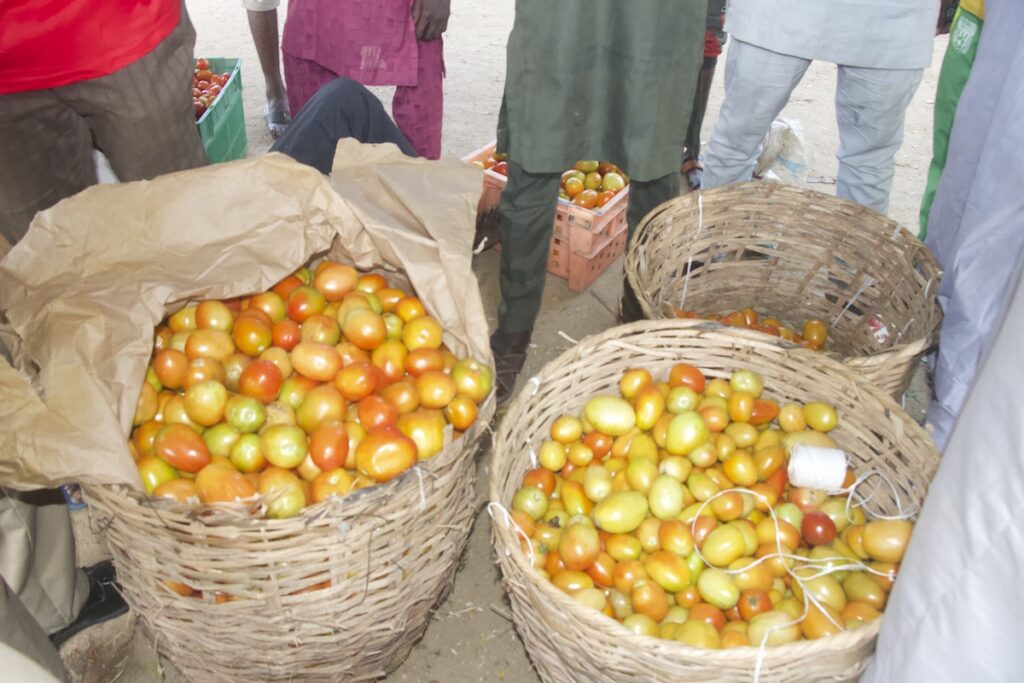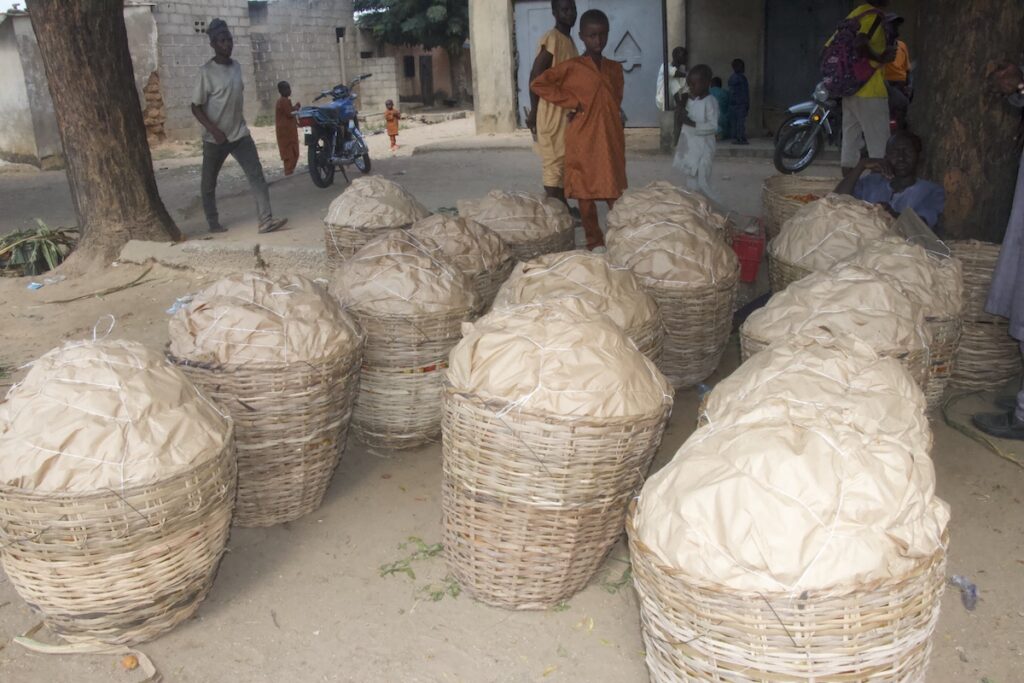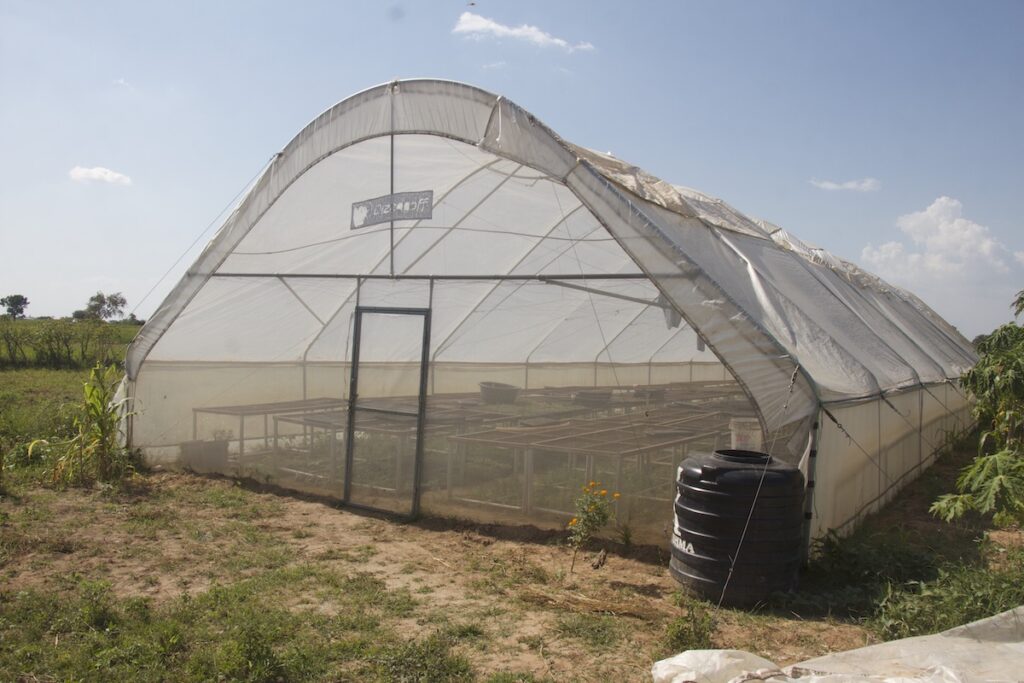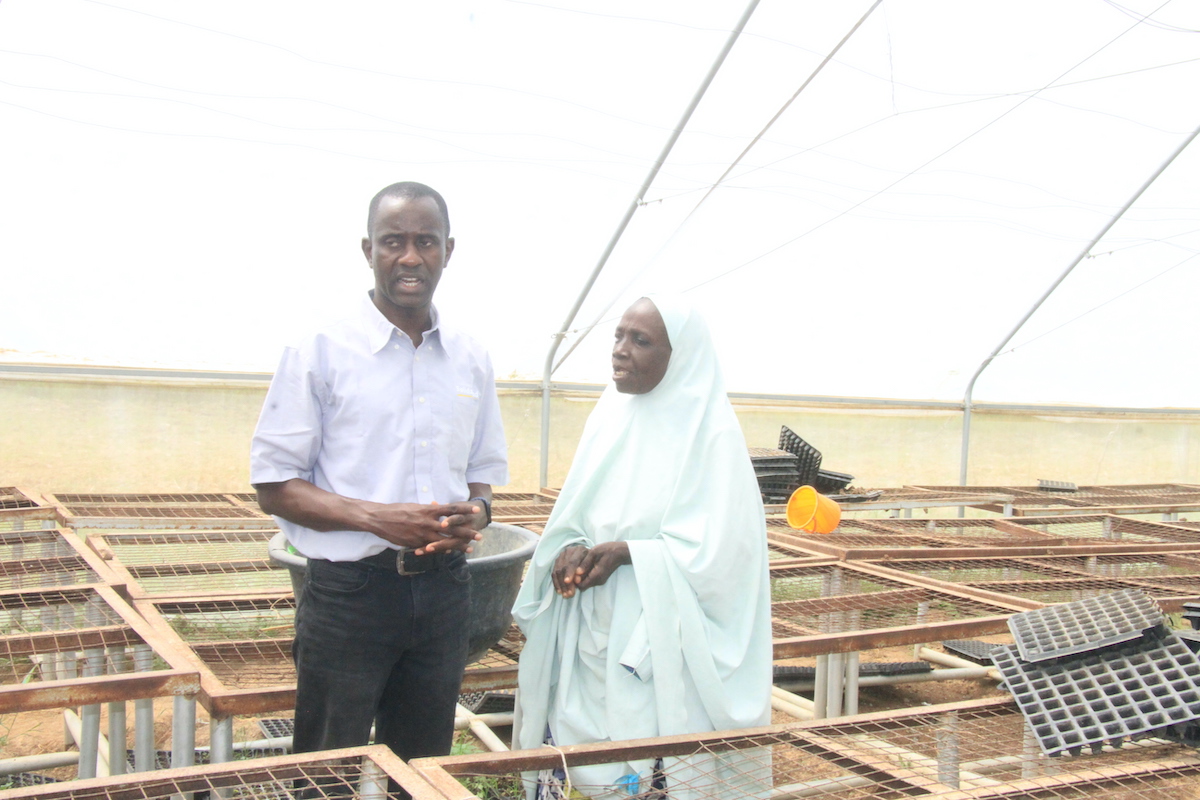Talatu Idris meets with Gabriel Olaolu Fapojuwo, the Solidaridad country representative for Nigeria in her greenhouse.
What would you do if the future you dreamed of for your children was just out of reach? That question weighed heavily on the mind of Talatu Idris, a widow and mother of six.
Living in the Bunkure area in the Kano state of Nigeria, Talatu toiled for 16 years on her five-hectare tomato farm to support her family. Talatu and her late husband once worked side by side, but when he passed away nine years ago, she took on the entire responsibility of running the farm to support her family.

Talatu was determined to keep her family afloat. Throughout the seasons she labored on her land, and yet, with only locally-sourced seeds and no formal training, her yields remained low. Her dream to provide her children with the best possible education felt like an impossible goal.
“I made very minimal income from my produce, which barely covered my family’s needs, let alone my hopes of paying for my children’s education,” she says.
Everything changed in 2023 when she was introduced to the Acting Now project and learned techniques that would reshape her approach to farming.
Talatu attended a training organized by Solidaridad and led by community facilitators — local farmers who had themselves been trained by Solidaridad — that provided insight into climate-smart agriculture, good agricultural practices and the Farmers’ Inputs Delivery and Investment Scheme (FIDIS).
This scheme, introduced by Solidaridad West Africa, operates on a credit system that allows farmers to access quality seeds upfront and repay the funds at a later date after the harvest. The funds are then reused the next season creating a sustainable reinvestment cycle. Talatu also received 6 packets of high-quality tomato seeds through the Farmers’ Inputs Delivery and Investment Scheme (FIDIS).
Equipped with new skills and confidence, Talatu planted the seeds and carefully tended the newly sprouted plants in her nursery. Later, she transplanted the seedlings and prepared for her first harvest as a test of the methods she had learned in Acting Now.

The results were transformative. Her initial yield generated an income of 2.5 million Nigerian naira (1,402 euros) — a five-fold increase from her previous seasons, which had averaged 500,000 Nigerian naira (280 euros).
“I never realized that the key to a good harvest begins with selecting quality seeds, followed by proper nursery operations and post-nursery management on the farm. I’ve always planted my seeds directly into the prepared ridges,” says Talatu.
Building on her success, she decided to cultivate another 16 packets of seeds on her plot during the 2024 farming season, incorporating all of her hard-won experience and her newly learned agricultural practices. This time, she achieved a record income of 3.7 million Nigerian naira (2,076 euros).
I no longer worry about affording my children’s school fees. With my improved income, I have paid the university tuition for three of them. Currently, I am investing in a greenhouse worth four million naira to ensure even greater yields in the future.
Talatu Idris

About Acting Now in Nigeria
The Acting Now project reaches thousands of farmers like Talatu across Nigeria, bringing essential support to Kaduna, Kano, Plateau, and Ogun states. The project is funded by the Netherlands Ministry of Foreign Affairs to help farmers like Talatu to secure a brighter future for themselves, their families, and their communities.
Through FDIS’ rotating credit scheme, farmers receive quality seeds and the programme provides training in sustainable practices that are specifically designed to address vulnerabilities in Nigeria’s food systems.
Ogochukwu Akunna, the Acting Now project coordinator in Nigeria says that the initiative aims to reach 23,000 farmers and support the sustainable production of fish, potatoes, maize, fruits, vegetables and other essential crops. Its goal is to improve food security, strengthen local economies, and cultivate resilience in agriculture.
The changes go beyond farming techniques. We are also empowering farmers to become entrepreneurs by integrating technology and digital literacy and opening up access to new markets.
Ogochukwu Akunna, Project Coordinator, Acting Now in Nigeria

